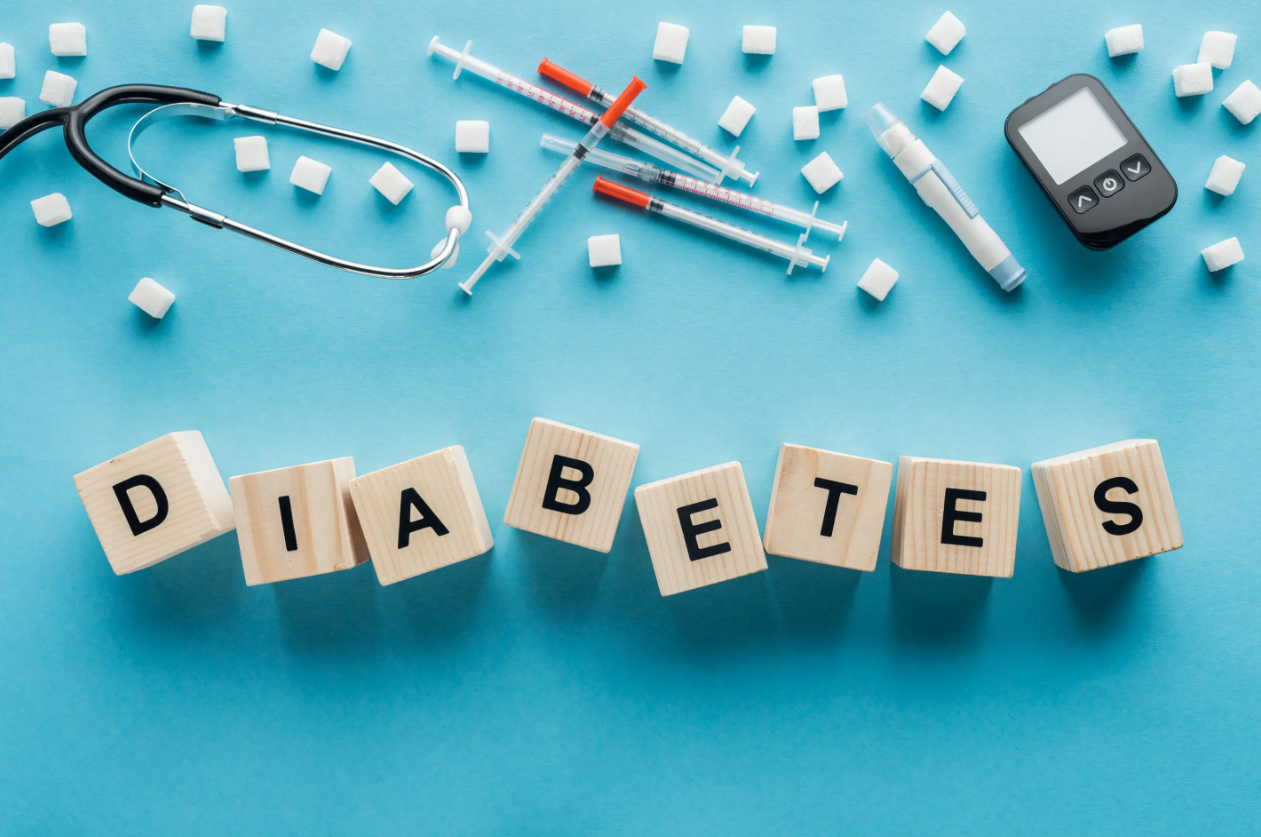
In the United States, 30.3 million people, or 9.4% of the population, had diabetes as of 2015. More than 1 in 4 of them were unaware they had the condition. Diabetes affects about 1 in 4 people over the age of 65. About 90% to 95% of cases of diabetes in adults are type 2.
Diabetes develops when your blood glucose levels are too high. Your main energy source is blood glucose, which is obtained from the food that you eat. The pancreas produces the hormone insulin, which aids in the transport of food-derived glucose into your cells for use as an energy source. Your body occasionally produces little to no insulin, or it uses insulin poorly. Following that, glucose remains in your circulation and does not enter your cells.
What Causes Type 1 Diabetes?
Type 1 diabetes develops when your immune system, the body's defense system against infection, assaults and destroys the insulin-producing beta cells in your pancreas. Scientists believe that type 1 diabetes is caused by genes as well as environmental factors such as viruses.
What Causes Type 2 Diabetes?
Type 2 diabetes, which is the most common type, is caused by several things, including genes and how you live your life.
- Becoming Overweight or Obesity
- Physical inactivity
- Genetic predisposition
- Pancreatic diseases
- Unhealthy foods
- Being overweight (CALCULATE your BMI here)
Who is more likely to develop Type 2 Diabetes?
If you are older than 45, have a family history of diabetes, or are overweight; your risk of developing type 2 diabetes increases. Sedentary lifestyles, race, and certain health conditions, such as high blood pressure, also influence the likelihood of acquiring type 2 diabetes. Additionally, if you have prediabetes or gestational diabetes while pregnant, your chances of developing type 2 diabetes increases.
Treatment Options
If medications and lifestyle adjustments are insufficient to manage your diabetes, you may benefit from alternative treatments. These therapies include bariatric (weight loss) surgery for certain individuals with type 1 or type 2 diabetes and pancreatic islet transplantation for certain individuals with type 1 diabetes.
o Weight-loss surgery
Weight-loss surgery is an operation that modifies the digestive system in order to facilitate weight loss. Surgical weight loss is often known as bariatric or metabolic surgery.
o Pancreatic islet transplantation
People with type 1 diabetes who have trouble controlling their blood sugar levels can try a new treatment called pancreatic islet transplantation. The hormone insulin is made by groups of cells called islets in the pancreas. When a person has type 1 diabetes, these cells are attacked by the immune system. During a pancreatic islet transplant, new islets from organ donors are used to replace the ones that have been damaged.
Dialysis treatments

Diabetes is usually associated with difficulties in renal function. These difficulties impair the filtration system of the kidneys, prompting the adoption of one of two methods to filter the blood:
- Hemodialysis
- Peritoneal dialysis
The decision between the two treatment options are influenced by a number of social, personal, and medical factors. Most people are free to select the method that they prefer.
· Hemodialysis demands following a strict schedule and living near a dialysis center. Even if you can obtain treatment outside of the center, this choice can complicate travel. However, this approach provides more flexibility between dialysis sessions.
· With peritoneal dialysis, you have to take care of yourself, and you only need to see a doctor once a month. Although it's important to plan your time at home and at work so that you have time for your treatments. Peritoneal dialysis must be done in a very clean way because any contamination can lead to infections inside the abdomen.
Amputations

Diabetes may increase the risk of nerve damage and circulatory problems. In some circumstances, this may need amputation of the foot or lower leg.
A study done in 2012 found that 4–10% of people with diabetes get foot ulcers. When foot ulcers do happen, most people have a good chance of getting better:
People with diabetes are more likely to need an amputation of a lower limb. Most amputations are done because of wounds or sores that won't heal. High blood sugar and smoking can make it more likely that you will have problems with your feet, which can lead to the need for an amputation.
There are ways to lower the chance of needing an amputation, such as:
- Managing blood sugar levels through diet
- Exercise
- Medicine
- Avoiding smoking
- Taking care of your feet
People with diabetes should seek prompt treatment for any issues that affect their feet. Early treatment of problems may help a person prevent ulcers and infection, lowering the chance of having an amputation.
Diabetes and Truck Drivers' Sedentary Lifestyles

The National Institute for Occupational Safety and Health says that truck drivers are 50% more likely than other people to get Type 2 diabetes. At the moment, there are about 500,000 truck drivers with diabetes on the roads in the United States. This is about one out of every seven drivers.
Since diabetes is one of the chronic diseases with the fastest rate of growth worldwide and is more common in truck drivers, it is important to be informed about it and take preventative measures. A CDL is immediately lost for truck drivers who have peripheral neuropathy, which affects 60% to 70% of people with diabetes and causes them to lose feeling in their hands and/or feet.
Without proper diabetes management, drivers run the danger of experiencing diabetic episodes of low blood sugar (hypoglycemia), which can cause them to feel lightheaded and confused or even pass out while driving. This is not something that you want to occur when someone is operating a commercial vehicle.


What Does the A1C Test Measure?
A protein found in your red blood cells called hemoglobin is where sugar binds when it enters your bloodstream. Although everyone's hemoglobin has some sugar connected to it, those with higher blood sugar levels have more. The A1C test calculates the proportion of your red blood cells with hemoglobin coated in sugar for a three month period.
Testing for Diabetes or Pre-Diabetes:
Get a baseline A1C test if you’re an adult over age 45—or if you’re under 45, are overweight, and have one or more risk factors for prediabetes or type 2 diabetes:
· Repeat the A1C test every three years if your results are normal but you are over 45, have risk factors, or have ever had gestational diabetes.
· Talk to your doctor about taking action right now to improve your health and reduce your chance of developing type 2 diabetes if your test results indicate you have prediabetes. The A1C test should be repeated as frequently as your doctor advises, typically every one to two years. However, if you have been diagnosed, it is recommended to test every 3-4 months to monitor and manage your diagnosis.
Get another test on a separate day to confirm the results if you don't have symptoms but your results indicate you have prediabetes or diabetes. If your test results indicate that you have diabetes, ask your doctor to recommend diabetes self-management education and support programs so that you can get the best start controlling your diabetes.
Your A1C Result: Diagnosing Prediabetes or Diabetes
An A1C result of 5.7% or less is considered normal, 5.7% to 6.4% is considered prediabetes, and 6.5% or above is considered diabetes. The higher your A1C, the greater your risk of acquiring type 2 diabetes within the 5.7% to 6.4% prediabetes range.

Medically reviewed October 2022
Reference sites:
www.cdc.gov/diabetes/basics/diabetes.html
www.truckinginfo.com/10139938/help-truck-drivers-deal-with-diabetes
www.niddk.nih.gov/health-information/diabetes/overview/insulin-medicines-treatments
Schedule your appointment today to get your Hemoglobin A1C value! Call 713-723-8300